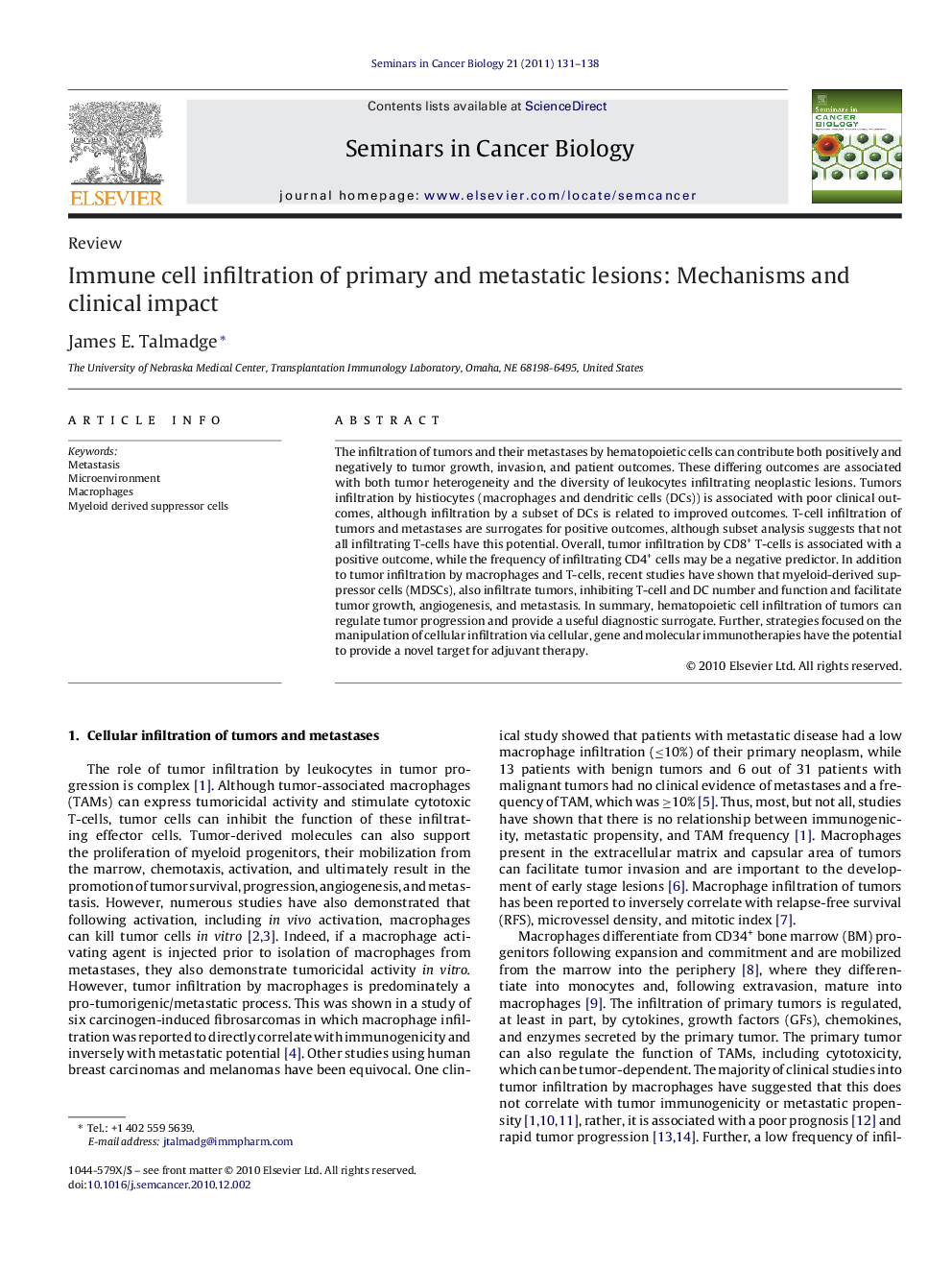| کد مقاله | کد نشریه | سال انتشار | مقاله انگلیسی | نسخه تمام متن |
|---|---|---|---|---|
| 2023827 | 1069814 | 2011 | 8 صفحه PDF | دانلود رایگان |

The infiltration of tumors and their metastases by hematopoietic cells can contribute both positively and negatively to tumor growth, invasion, and patient outcomes. These differing outcomes are associated with both tumor heterogeneity and the diversity of leukocytes infiltrating neoplastic lesions. Tumors infiltration by histiocytes (macrophages and dendritic cells (DCs)) is associated with poor clinical outcomes, although infiltration by a subset of DCs is related to improved outcomes. T-cell infiltration of tumors and metastases are surrogates for positive outcomes, although subset analysis suggests that not all infiltrating T-cells have this potential. Overall, tumor infiltration by CD8+ T-cells is associated with a positive outcome, while the frequency of infiltrating CD4+ cells may be a negative predictor. In addition to tumor infiltration by macrophages and T-cells, recent studies have shown that myeloid-derived suppressor cells (MDSCs), also infiltrate tumors, inhibiting T-cell and DC number and function and facilitate tumor growth, angiogenesis, and metastasis. In summary, hematopoietic cell infiltration of tumors can regulate tumor progression and provide a useful diagnostic surrogate. Further, strategies focused on the manipulation of cellular infiltration via cellular, gene and molecular immunotherapies have the potential to provide a novel target for adjuvant therapy.
Journal: Seminars in Cancer Biology - Volume 21, Issue 2, April 2011, Pages 131–138